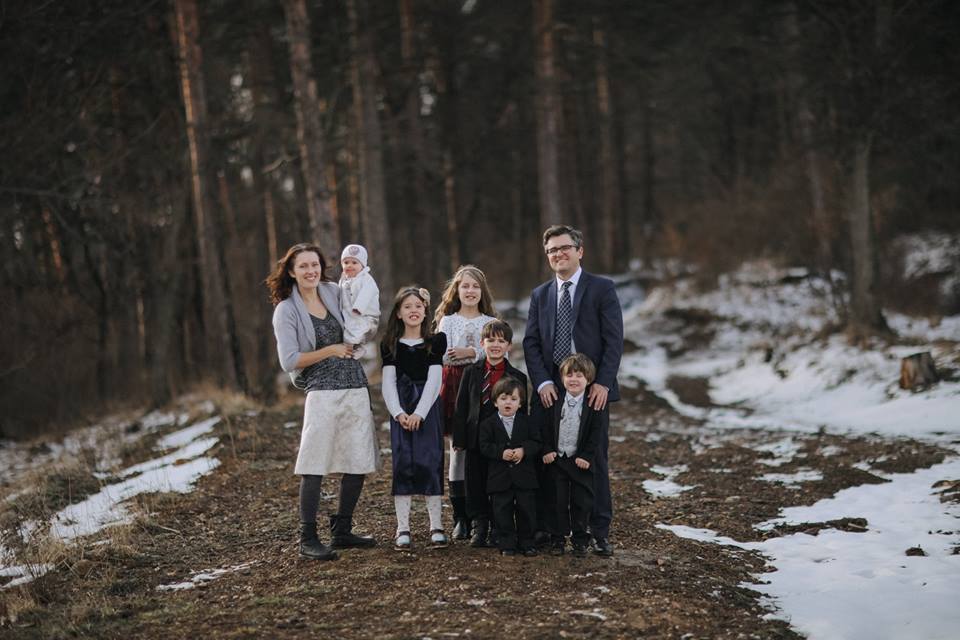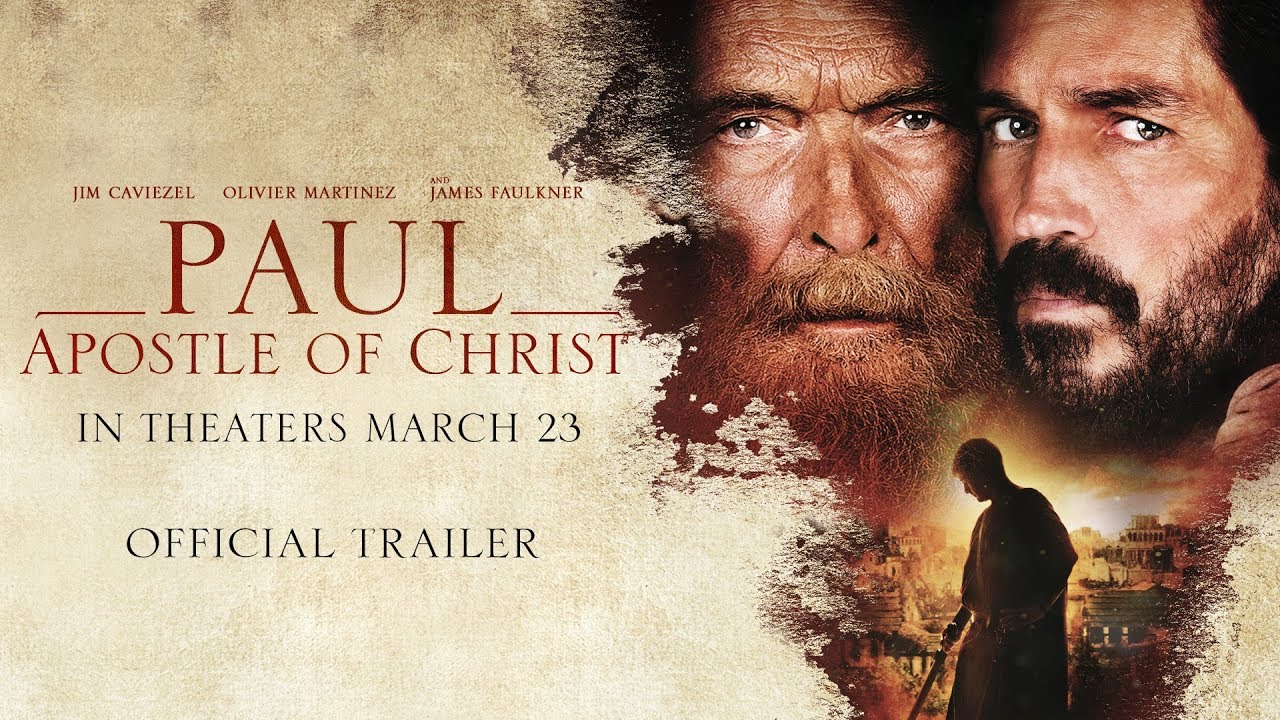Pentru traducere automata, fa click aici – Romanian
View the Power Point slides used in presentation – here
From www.logospodcasting.com Producer: Dan Miclea Text: Agnus Dei. This lecture is from the West Coast Romanian Youth Conference, May 2014. You can watch the messages here – „Beyond This Moment” 2014 West Coast Romanian Youth Convention.
 Is there anybody here who is not on social media, in some way, shape or form? I know one, over there. Besides him, is there anyone who doesn’t have a social media account: instagram, Facebook ? Alright. You definitely came to the right place. So, let us get started. So, what do we want to do today? Basically, we’re gonna look at some aspects of social media.
Is there anybody here who is not on social media, in some way, shape or form? I know one, over there. Besides him, is there anyone who doesn’t have a social media account: instagram, Facebook ? Alright. You definitely came to the right place. So, let us get started. So, what do we want to do today? Basically, we’re gonna look at some aspects of social media.
- We’re gonna take a look at some statistics that are absolutely mind boggling, in terms of how pervasive and how popular social media is.
- We’re going to look at what social media does from the psychological aspect- to what it does to the person who uses social media very often.
- From there, we will transition into some spiritual aspects. I believe that if one is active in social media, that account can be ‘kind of’ a snapshot of their spiritual status and I will provide evidence for it today.
- Then, we will look at some case scenarios. Let’s just say that these will be some hypothetical examples, but the thing is that many of those hypothetical examples have actually occurred in the Romanian Christian community. So, let’s just say from the beginning that these are hypothetical, so I don’t want you guys to go and look up people’s accounts, to see who has done what.
STATISTICS
Data from about 6 months ago, shows- Facebook was at about 1.15 billion members. Currently, it’s close to 1.3 billion users. This Google + thing, no one really knows what it is, but if you use it, if you have a gmail account, you’re already pretty much signed up for this. I don’t know how many people actually use it. Then, there’s this funny little beast called Instagram. Instagram is a newer service, extremely popular with young people. Twitter- many of you guys do follow people on Twitter. Twitter is not as friendly for picture exchanges and stuff like that, as Instagram and Facebook, but still. Then, we’ve got some other services that are not quite so popular, like a new one – Snapchat- that will probably become very popular, shortly, here, in the next couple of years.
Look at the rise of Facebook. This is just in the last few years, 2010. It’s more than tripled now (2014) to 1.3 billion people. And then, half those people are active on their cell phones. And then there are many who are only using cell phones, this will be rising in the future, among young people and teenagers. It’s important ti keep that in mind.
The two most popular services being used by Romanian Christian youth are Facebook and Instagram. One interesting thing that we have seen recently in the last year or so, is we have seen an exodus from Facebook into Instagram. Young people, especially those 25 and under, have been leaving Facebook. Not that they’ve been deleting their accounts, they still keep their accounts, but they’re not as active . They don’t post as much on Facebook, as they do on Instagram. There are some very interesting reasons as to why that is, and we should probably review them.
First of all, Instagram – ‘instant’ – that, actually is a factor. It’s a lot easier to post a picture on Instagram, as it has its own app and picture taking capability, so you can take a picture and pst it right away- much less of a filter there. If using a desktop, it takes a while to post a picture on Facebook. You have to choose a picture, write something about it, get the file uploaded, this and that. There’s a little bit more of a filter there. You gotta thing about it twice before you actually put it up there. I think it’s a very important factor – seeing more edgy, more racy pictures on Instagram. Facebook is also becoming really crowded. Everybody’s mom and grandma is on Facebook and they’re all friends with the kids and the teenagers. So that kind of makes youth move out of that environment, to have a little bit more privacy, to be a little more aggressive, a little more edgy in what they post. Not many parents on Instagram. And Instagram is a lot more conducive to posting fast, edgy, racy type pictures. Key: no parents. Home alone.
Studies have been done, multiple studies, if you follow the psychology literature and journals about Facebook and social media. The average number of friends [for a Facebook user] is 338 friends, 53% female – 47% male. Now, you may think that this is not a huge difference, but if one wins a presidential election 53% – 47%, we call that election a landslide. If you’re talking about 1.3 billion people, there’s a difference here of about 80 million. There are 80 million more women on Facebook and we need to ask ourselves a question: Why are there more women on social media, than men? There is a study where they took 1600 people and in this study, they discovered a new word: Frenemy. Frenemies are real life enemies, that you are friends with on Facebook. And the reason you’re friends with them on Instagram and Facebook is in order to keep tabs on them. 58% of women, in this particular study, answered ‘Yes’ to the fact that they have frenemies- that they follow these people to keep tabs on them and see what they’re up to, basically, to spy on them. Very interesting, esp. since the other person may have no idea that they’re frenemies.

Photo credit magneticmessagingreviewer.com Study: Half of 18-24 yr old women check FB first thing when they wake up, 21% wake up in middle of night to check FB.
Studies have also shown that women are more prone to perseveration. Perseveration is looking at it, thinking about it, analyzing it. Those comments, posts- it turns out that young women in the age group of 18-24, half of them, the first thing they do each morning is they grab their phone, turn it on, and they open up their Instagram and their Facebook account and they want to see what happened on their timeline, to see if anyone has tagged them, to see if they got any responses on their posts, how many likes they got on their pictures. It is very, very interesting. And this one’s scary right here: In this study of 1600 people, 21% of these women, in the 18-24 age group, they wake up in the middle of the night to check Facebook. They will check to see that no one tagged them in an inappropriate picture, they check to see if anybody has left a mean comment on their post, to see if anybody wrote something bad about them, they want to see how many likes they got on their pictures- this is getting to be pathological from a psychological standpoint. And it is also very concerning to the writers of the article.
Don’t forget, there’s a bunch of fake profiles on Facebook, as well. So, be careful whom you get friend requests from, and whom you accept.
So, Why is Social Media so Popular?
These kids are basically in their 20’s, college students and they’re all entrenched in their i-Phones. I was over at a restaurant with my wife, we went out for dinner and a soccer team of 11 year olds showed up. There were about 15-20 of them at their table, and while they were ordering, at one point, I wish I could have just taken a picture of them. At one point, every single one of those 11 year olds was looking at their phones. Either at their own individual phone or sharing a phone with someone else. They were looking at it, doing something on the phone. This was a whole table full of kids, all quiet. They were not talking, they were not conversing. They were looking at their phones. Something to think about… We’ll address this later.

„Selfie” is the word of the year for 2013. Photo credit beatcreativemarketing.com
The selfie phenomenon has become absolutely crazy. I recently read an article, in which there was a guy who took 10,000 selfies to achieve the perfect selfie. And, he entered into a deep depression. It is pervasive how concerning this has become. Here’s our dear leader, over here, taking a selfie with other world leaders. So, let’s talk a little bit about the selfie phenomenon. Selfie, it turns out, was the word of the year in 2013. And here’s a quote: There is a primal human urge to stand outside of ourselves and look at ourselves. And it’s not only about taking pictures. You want to look good in the mirror, you spend time, you know, fixing yourself up and stuff like that. So the taking of a selfie is just a continuation of that process. And there’s a slippery slope here, as we’ll see. There’s this concept of narcissism. Now, taking a selfie and posting it, and doing it repetitively and compulsively, that’s nothing but narcissism. An exhibition of narcissism. You all know who Narcissus was in mythology. He was a person who basically saw his own reflection in the pool and fell in love with his look, with his picture. And he could not move away because he thought he was so beautiful. He could not stop looking at himself until he died.
The question is: What does God think about selfie-ism? Or, self narcissism, so to speak? Here’s a verse from Matthew 23:12 „Whoever exalts himself, will be humbled. And whoever humbles himself shall be exalted.” Now, you’ve got to remember that Christianity is a religion, actually it’s not a religion, it’s a fate. And it is based on self denial. That is one of the hallmarks of our faith. It is not necessarily based on self preservation, and definitely not based on exaltation of the self, of promoting of the self. So, this process of selfie-ism and narcissism is in stark contrast with the foundation of our faith. Self admiration and narcissism is related to idolatry. If you study Romans 1, that’s basically the depravity chapter in the Bible. That’s the chapter that lays out the doctrine of human depravity and human self centeredness. You will see that at the core of narcissism, there’s a concept here, there’s an exchange of truth for a lie. What is that exchange of truth for a lie? And that exchange is nothing else, but the worship of the creature instead of worship of the Creator.
And apostle Paul, interestingly, goes as far as linking the process of worshipping the creature itself to homosexuality. How does that happen? We’ll talk about it in a second. But the thing is that you’ve got to realize that homosexuality is one of the leading issues in the global church. Seven years ago we had the Evangelical Lutheran Church of America (ELCA) (4 million members) who had split on the issue of homosexuality, on the issue of ordination of gays. It was an almost halfway split. We have the Presbyterian Church USA (2 million members), that will probably split in the near future on the same issue. We have the Global Anglican Church (80 million members), that church will probably split on this issue, in the future, as well. The new leader, a guy named Justin Welby, he leans towards accepting gay marriage and the ordination of so called gay Christians. So, it is absolutely critical that we understand that this is probably the number 1 issue in the global church. This is not yet a problem in the Romanian Pentecostal Church, It may be a problem that is brewing, but I don’t know that I can make that statement, but, will we face it in the future? I don’t know. We might.
There’s a very interesting phrase in Romans 1. It occurs 3 times, and says: „God gave them up”. Let me actually read a few verses from there. Romans 1:24 – „24 Therefore God gave them up in the lusts of their hearts to impurity, to the dishonoring of their bodies among themselves, 25 because they exchanged the truth about God for a lie and worshiped and served the creature rather than the Creator, who is blessed forever! Amen.” And, I would like to a video with you guys, it’s just 2 minutes [long]. It is Pastor and theologian John Piper. He was asked the question: Is homosexuality wrong? And if it is wrong, why? And, we’re gonna play 2 minutes of this video. Piper, „As I reflect on Romans 1 and the way Paul unpacked the problem with homosexuality, it occurs to me that Paul is saying something like this: When you exchange the glory of God for idols, the main one you exchange the glory of God for is yourself. The idol that you have is yourself. And he seems to draw up that in exchanging God for our most cherished idol, which is your sex (male or female) we are prone to fall in love with the same sex. The implication is that same sex attraction is a dysfunctional form of idolatry. Now, there are times- don’t hear me saying that homosexual temptations are the only way for that kind of self idolatry.” Very interesting the way he argues this, and I think he is correct. I think the Romans 1 exchange of the Creator for creature, or most often the self- worship of the self- predisposes one to homosexuality.
So the question is: Why is social media so popular? That’s quite an issue of exploring. We saw the issue of the self, selfie and some of the implications related to that. There’s an ego boost, again, related to selfies, when you actually spend time on social media looking at photos. Let’s take a look at this 2011 study of 300 college students. I always find psychology journals either absolutely crazy, or funny, or fascinating because they do weird stuff like this. They were asked to surf their Facebook profile online for 3 minutes. They took this group, they divided them into 2. 150 of them surfed and looked at their own picturee, their profiles, their likes for 3 minutes. The other arm of the study, they were just kind of looking in a mirror and spending time alone. And after an interview, they found out that there was a significant boost in self esteem by the parameters they measured from these people who were gazing at their profile. Interesting. The question is why?
There’s intense chemical activity that takes place when you entrench yourself in this kind of activity. It alters the brains physiology, it turns out. It does the same thing that pornography does, but not quite to that extent. It does some of the same things that stimulant drugs do, like speed and cocaine, although not quite to the same extent. The same physical process of repetitive behavior, compulsive behavior, checking and checking and checking. Studies show that people check Facebook at the most inappropriate times. People check Facebook at funerals. People check Facebook in church; they post in church. People post on Facebook at board meetings at work, even at high level meetings. It happens’ I’ve done that actually.
What is addiction? Addiction is a compulsive psychological need to perform an action. And if you don’t satisfy this need to perform that action, to do your clicking, you get anxiety, you get fidgety. Very interesting. If you don’t satisfy that need- but, even if you do, multiple studies have shown that it leads to loneliness. There are people now, who are substituting real life communication between people, seeing themselves face to face, or even talking on the phone, they’re substituting it with social media- looking at pictures, writing comments and so forth. So, it leads to a lack of human interaction face to face. It leads to loneliness.
Here’s Benjamin Netanyahu You guys have heard him talk. He has a very thick voice, a very thick jewish accent. Here’s what he says, „I’m the only one here without all these electronic devices. I’m a free man,” he says very slowly. „You are all slaves. You are slaves.” And the thing is he may be correct. He may be correct, especially about the younger people. A Facebook friend of mine posted this last week: Facebook makes it easy to tell where one’s heart is and who their god or gods are, as their words and posts reveal. Very true; I gave a like to this post.
Oh, Those Facebook profiles
 Let’s talk a little bit about the Facebook profile. Now, we talked about the psychological aspects. Let’s start looking at some spiritual aspects. Let’s look at how the Facebook profile can be a snapshot of who you really are. This is only for people who are active in social media. If they’re not active, it is not as indicative. But if they’re really active, it’s a photo shot of you, essentially. You take the best photos, you get the best highlights, the best achievements, and you basically lay down the most positive aspects of your life. I asked a girl at church a while ago, „Hey, how come you deleted your Facebook profile?” And she said, „You know, I’m really tired of comparing my life to other girls.” She was looking at other people’s photos and their profiles and she thought they were so much better than her. And she decided: I’m just gonna quit this because this is making me really depressed.
Let’s talk a little bit about the Facebook profile. Now, we talked about the psychological aspects. Let’s start looking at some spiritual aspects. Let’s look at how the Facebook profile can be a snapshot of who you really are. This is only for people who are active in social media. If they’re not active, it is not as indicative. But if they’re really active, it’s a photo shot of you, essentially. You take the best photos, you get the best highlights, the best achievements, and you basically lay down the most positive aspects of your life. I asked a girl at church a while ago, „Hey, how come you deleted your Facebook profile?” And she said, „You know, I’m really tired of comparing my life to other girls.” She was looking at other people’s photos and their profiles and she thought they were so much better than her. And she decided: I’m just gonna quit this because this is making me really depressed.
So the question is: Would you be proud to show your social media page to your pastor? Many pastors are on Facebook and on Instagram, maybe, and we’re FB friends with them. But, would you be proud if they started going through your posts and timeline? The question is: What statement do you want to make with your profile picture? Here’s a profile picture with my wife. Many people post something like this, usually a picture of their family or friends, but not always. What if this is your profile picture? (Of President Obama). You are making a statement at this point that you identify with the president, with his ideals, with what he stands for. Or, suppose your social profile picture is this. A friend has this profile. It is a spoof on the last picture; it is pastor Saeed Abedini, he has been arrested and imprisoned unjustly, unfairly in Iran. He has a medical condition and he’s not being treated for it. He is essentially being tortured in this Iranian prison, so my friend, he is making a statement with this. Just like the previous guy, he is also making a statement, but a totally different one: Free Saeed! Here’s another FB profile. I said I’m not gonna use names, so I won’t. Another statement is being made here: „I love a man and a woman holding hands”. This person loves traditional marriage. He is standing up for that. He is using a picture. We are taught to communicate with pictures in social media, so he’s using a picture to communicate a lot of information here. Here’s another FB picture: We’ve got Jesus, the Lion, we’ve got Jesus, the Lamb, put together here. This is a very powerful, powerful picture, and to make this your profile, that’s great, I think.
I am looking at the person whose profile this is, he’s in this room. For those of you that don’t know, this is the animal style burger from In ‘n Out; it’s off the secret menu. You have to order the animal style burger because it has the fried onions in there and the pickles. Suppose this was your FB picture. That’s pretty crazy. Suppose this is your profile. This is not only a pro choice person, this is a pro abortion person. This is a person who favors depopulation. Depopulation is the idea that the earth is overcrowded and we must reduce the population of the earth. This is what the founder of the Planned Parenthood system of clinics held, at the core of her beliefs, Margaret Sanger- depopulation. She was in favor of abortion for that reason. Reminds me of a verse from Isaiah 3:9 „They proclaim their sin like Sodom, they do not hide it. Here is a profile from somebody, he likes Ravi and Paul Ryan, he’s probably a republican. He likes some churches- like Desiring God- he’s a John Piper fan. Here’s another profile. This person is a church goer, likes Hillsong. Almost everybody likes Hillsong, likes Carrie Underwood, who came out and (she is a former Baptist Christian) who supports gay marriage, likes a couple of Romanian (depraved) pop stars, the equivalent of Lady Gaga, and also likes Eminem. Don’t forget that when you give a ‘Like’ to something on Facebook, you get them in your news feed. So all the trash they put out will appear on your newsfeed. Here is another Romanian churchgoer, if you look at this page, you will see at least a couple of gay personalities. When you give likes to these people, they are in your news feed.
Do you really LIKE these people? That’s the question. If you are a saved individual, if Jesus is the Lord and Savior of your life, can you actually do this with a clear conscience? That’s the question that needs to be answered. Like I said, we are taught to communicate via pictures. One picture, they say, is worth a thousand words. A lot of people post photos instead of comments these days. Memes, I absolutely love memes. This is one of the positive things in social media, I believe. Check out this one: „Nascut in familie de pocaiti”, „Suppressing the truth by his unrighteousness.” In 10 seconds, I have told you 5 minutes of information. Right? I have told you that this young man is 18 years old, he was born in a Christian Romanian family, he went to church, he was forced to go to church, when he was 18, he rebelled and left the church. Now, he is coming home drunk and high on pot. You can see the dazed look in his eyes, you can see the flushed cheeks. He is drunk, basically. He is wearing a pimp coat, his hat in a hip hop style, here. He’s got the whole look going on and the punchline is at the bottom here, from Romans 1 – Supressing the truth by his unrighteousness”. He knows the truth, he’s heard the Gospel a million times at church, but he;s choosing to suppress the truth by his own unrighteousness. All of this stuff, I can go on for 5 minutes and literally unpack 5,000 words about this guy. But this picture right here, the meme, can tell you in 5 seconds. That’s why pictures are very powerful in communicating. One cannot keep on sinning and expect grace to abound. This is one of the characters from Lord of the Rings. And he picks a scene from the movie, where he says: „One simply cannot just walk into enemy territory. It’s a very powerful scene. So people make a meme based on this, they take the passion for the idea, the powerful moment from that motion picture and they place a different message on it to kind of drive the point across, that idea behind memes.
Now, here is an interesting one. I love this site: Reformed memes daily. But this one, I took objection to. (Besides a free will/predestination take, the meme also states: „I am a huge fan of Rush (band) ). This is a 70’s metal band with depraved lyrics. You do not want, as a Christian, to listen to that kind of music. He puts that out there; a lot of these guys thing that music is neutral, but, in fact, it is not neutral. So I wrote him a comment: „Rush? Huge fan? 🙂 ” I placed a smiley so he knows I’m not too hard. „Do not love the world or the things of this world. If anyone loves the world, the love of the Father is not in him.” So, I got a reply from somebody: „So, I shouldn’t prepare meals and recipes from somebody because they’re made by unbelievers? Hmm. I love this recipe. So yummy. I love Rush. It’s such a cool band. What about clothes? Designed by pagan fashion designers? Should I only live in a house build by godly people? Just saying… You know..” So, here’s a person that would subscribe to what I would think is adiaphora, that is, it’s not really written in the Bible that you shouldn’t listen to Rush. Tell me where it says in the Bible that you shouldn’t listen to heavy metal, or like, those depraved lyrics in their songs? So, then, I came back with this response: „Nothing is immoral about food or clothing, unless a message is transmitted by the clothes. Rush lyrics are a different story.” So, I hit them on the issue of Rush lyrics. I didn’t even approach the music style, but just the lyrics: „No believer should indulge or be huge fan of such.” So this is the position I took. He didn’t come back with a response. He probably felt convicted, I hope.
(From the first 35 minutes) To be continued……
Urmareste Emisiunea Logos aici-
- Facebook – DanMiclea MusicStudio
- http://www.logospodcasting.com
- Blogul Perspective Crestine – http://dorupope.com
.
Podcasturi precedente
Alte Emisiuni Logos, Realizator Dan Miclea-
- Misionarul Român din Egipt Partea 1-a, misionarul ne-a povestit cum a ajuns in Cairo, cum si-a inceput misiune printre egipteni si calatoria pe Raul Nil, ca sa duca evanghelia la nubieni, iar apoi calatoria la muntele Sinai unde a propovaduit evanghelia la beduini. E foarte fascinant sa asculti martuira misionarului si felul in care Dumnezeu se face cunoscut egiptenilor musulmani prin vise, ca mai tarziu diferite persoane sa-l traga la o parte pe strada si sa-l intrebe daca e crestin, si sa le spuna despre acel Isus pe care ei L-au visat.
- Misionarul Român din Egipt Partea 2-a – Pretul platit de 3 convertiti egipteni, credinciosi pana la moarte… – Misionarul Român din Egipt – Partea 2-a
- Gicu Stan –
- Cand s-a nascut Biserica Domnului?
- Exista vreo diferenta intre manifestarea Duhului Sfant inainte de Cincizecime si dupa Cincizecime?
- Unde e frontiera care desparte insusirile noastre native, cat si cele pe care noi le dobandim prin instruire, de darurile pe care le imparte Duhul Sfant?
- Dumnezeu Tatal Introducere (1) In crestinism, Dumnezeu este prezentat in Cuvantul Sau din Biblie. Cel mai bine putem sa-l cunoastem pe Dumnezeu de aici, din Scripturi. El este o persoana, in primul rand, El este prezentat ca fiind o persoana.
- Teologia: Arma sau Ajutor? (2) Ce inseamna teologie? Ce este teologia, in special teologia crestina. Sigur ca teologia se ocupa, in general, despre existenta Divinului si interactiunea dintre divin si cosmos si lume. Din punct de vedere crestin, teologia se ocupa de un studiu sistematic a revelatiei crestine cu privire la Dumnezeu, la natura lui Dumnezeu, la scopurile lui Dumnezeu si la relatia lui Dumnezeu cu universul in care noi traim. Este un studiu a lucrurilor sfinte, a Divinitatii, a adevarului lui Dumnezeu.
- Despre Trinitate (3) Dumnezeu este doar unul singur. Dar atunci, de ce vorbim despre Trinitate? Si mai ales, de ce vin scriitorii Noului Testament si ne vorbesc despre Duhul Sfant si Fiul? Si ne spun ca si Fiul si Duhul Sfant au caracteristicile lui Dumnezeu. Cand au aparut aceste fiinte care sunt asemenea lui Dumnezeu? Chiar si in Vechiul Testament avem pasaje despre un Dumnezeu existand in mai multe persoane. Numai trebuie sa intelegem ca descoperirea lui Dumnezeu a fost progresiva, adica, Dumnezeu nu a corectat azi ceea ce am gresit ieri si n-a inlocuit azi ceea ce ne-a spus ieri. Ci, ceea ce El nu ne-a dezvaluit despre Sine, ne-a dezvaluit astazi. Deci, de ce a procedat astfel Dumnezeu?
- Exista Dumnezeu? (4) Gandul despre Dumnezeu nu-l putem scoate din mintea noastra, fie ca suntem atei, fie ca suntem credinciosi. Atunci, ramane intrebarea: Cum stim ca exista Dumnezeu? Nu se poate stii despre existenta lui Dumnezeu decat daca El se descopera, daca se reveleaza pe Sine. Indiferent cat suntem de savanti sau puternici, noi suntem extrem de limitati. Si cu toate descoperirile noastre in diverse domenii, nu putem decat sa admitem ca stim ca exista din ce in ce mai mult necunoscut.
- Atributele lui Dumnezeu PARTEA 1 (5) Introducere – Insusirile lui Dumnezeu: Incomunicabile si Comunicabile – Atribute transcendente si imanente a lui Dumnezeu – Insusiri absolute si insusiri relative.
- Atributele lui Dumnezeu PARTEA 2-a (6) Daca Dumnezeu este suficient in El Insusi, care este ratiunea pentru care am fost noi creati? Ce inseamna autosuficienta lui Dumnezeu, aseitatea lui Dumnezeu, eternitatea lui Dumnezeu? Cum intra in timp Dumnezeu? Pentru ca noi, cand intram dintr-o dimensiune, dintr-o camera intr-alta, atunci parasim primea dimensiune, aceea din care am iesit. Deci, cand Dumnezeu intra in timp, si lucreaza in succesiunea timpului, iese El, sau altfel spus, abandoneaza calitatea Sa de a fi in afara timpului? Iese El din afara timpului si intra in timp?
- Atributele lui Dumnezeu PARTEA 3-a (7) Dumnezeu nu este limitat de spatiu si nu exista nici un spatiu unde Dumnezeu sa nu fie prezent. Dumnezeu este spirit. Ori, un spirit nu are caracteristici spatiale, deoarece un spirit nu are substanta, materie, trup. El poate fi, astfel, prezent in inima unui om; inima insemnand nu neaparat, sau nu numai organul care pompeaza sangele, ci mai ales omul dinlauntru, spiritul omului. Dumnezeu poate fi prezent in spiritul omului, care devine astfel, din cauza prezentei lui Dumnezeu, un templu a lui Dumnezeu. Dar El poate fi prezent concomitent si in vastul cosmosului care se afla in expansiune.










































































































































































































































































